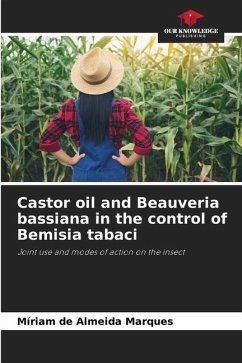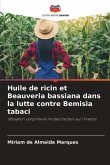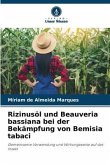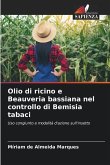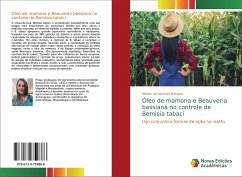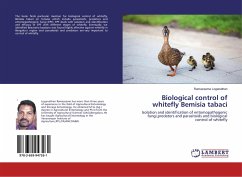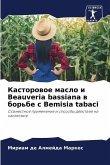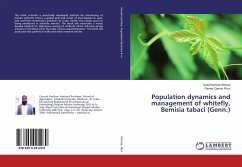The whitefly, Bemisia tabaci, is considered one of the most important pests of agriculture worldwide due to its damage and losses caused in several cultivated species. In addition to its damage, B. tabaci has great reproductive and adaptive capacity, hosts in more than 900 plant species and also has a high capacity to select individuals resistant to active ingredients of insecticides. For these reasons, the control of B. tabaci is complex and constitutes a great challenge, thus, there is a need for alternative measures to manage this insect. In this sense, the use of vegetable oils, such as castor oil, and entomopathogenic fungi, such as Beauveria bassiana, have shown favourable results in the control of B. tabaci. When these are used together, they can enhance pest control, promote lower selection pressure of resistant individuals, present low toxicity to beneficial organisms and, due to their characteristics of being able to be mixed and sprayed together with chemical insecticides, can provide a reduction in application costs.

